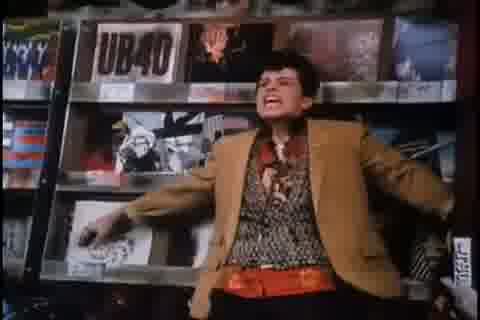Director:
Howard DeutchGuión:
John HughesCámara:
Tak FujimotoMúsica:
Michael GoreReparto:
Molly Ringwald, Harry Dean Stanton, Jon Cryer, Annie Potts, James Spader, Andrew McCarthy, Jim Haynie, Alexa Kenin, Kate Vernon, Andrew Dice Clay (más)Streaming (3)
Sinopsis(1)
Andie es una joven que quiere ser aceptada por la sociedad y que vive con un montón de problemas. Su padre no encuentra trabajo, su mejor amigo es un excéntrico que está enamorado de ella y las chicas ricas de la escuela la tratan peor que a sus empleadas. Para colmo de males, se ha enamorado de un chico con el que quiere tener una cita para el baile del instituto, pero su difícil carácter la lleva a tener un enfrentamiento y acudir sola al evento. (United International Pictures)
(más)Reseñas (1)
The last film in John Hughes’s “Molly trilogy” (i.e. the third collaboration between Hughes and Molly Ringwald) is actually a variation on their first collaboration, Sixteen Candles. At that time, in his directorial debut, Hughes still relied heavily on the teen-comedy format of the day, though he fundamentally upgraded it with his characteristic empathy for adolescent characters and the uncovering of their personalities and emotions behind the facade of the pigeonholes of the high-school social ladder. With Pretty in Pink, Hughes focused more on the romantic and melodramatic storylines and delved more into the inner lives of the characters comprising the central triangle, as well as their close friends. The central character was written explicitly for Molly Ringwald and mirrors her personality as well as her lifestyle and fashion sense. Thanks to that, her character inevitably moves further away from the notional middle of the high-school hierarchy, but she is also more confident and distinctive than her characters in both Sixteen Candles and The Breakfast Club. Despite the originally intended climax, the traditional storyline of a teenage girl’s fairy tale prevailed in the interest of the audience, as that storyline inevitably belongs to 1980s films, even those that are more progressive in terms of their characters, at least as long as we remain in the ranks of the mainstream. Hughes always stayed within the boundaries of the mainstream, but that in no way detracts from the likability and charm of his films and his contribution to the genre. The broad popularity of his films about girls striving primarily to win the man of their heart’s desire laid the groundwork for the later, more introspective films about girls coming of age and finding themselves that crystallised in the new millennium and whose creators emphasise the formative importance of Hughes’s films to their own works.
()

